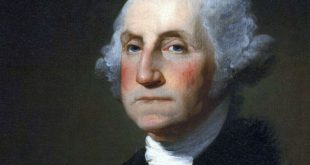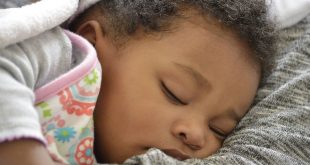On Saturday, May 23, 2020, Shiela Lucas, a 71-year-old great grandmother and Washingtonian, was shot in the head in front of the local grocery store trying to break up a fight to save her granddaughter and is now dead. Lucas and her murderer were black.
Conversely and just days later on Monday, George Floyd, a 46 year-old black man, was detained by a sadistic white Minneapolis police officer who held his knee pressed against Floyd’s neck for several minutes over a non-violent allegation; Floyd died shortly thereafter. Floyd pleaded for his life during the arrest; he said repeatedly, “I can’t breathe,” “you’re killing me.” While the police officers involved have been terminated, none were arrested at the time of publication. The community is rioting in Minneapolis and in Los Angeles over Floyd’s death; they are filling the streets and ransacking police cars – and it seemingly is not over.
What’s the difference between these two homicides? The nation knows about one murder and isn’t informed about the other.
Police brutality has rightly been a concern within the black community. Police owe a duty to everyone they encounter and are held to a higher standard of care. Notwithstanding their oath to protect and to serve, police brutality cases that held the attention of many have become a rallying cry within the black community. The murder of Oscar Grant in Oakland, Eric Garner in New York, Philando Castile in Minnesota, Tamir Rice in Cleveland, Ezell Ford in Los Angeles and the assault of Rodney King in Los Angeles by the LAPD are top of mind. These cases prompted a well-deserved outcry from the families of these victims and from their respective communities if not the nation.
These kinds of murders hit a nerve that runs deep within the black community and almost always elicit a national outcry. It’s an emotional chord that pushes back against the memory and the pain of racism, betrayal of authority, and the historical bias of the criminal justice system, in my opinion. In response to these tragedies, I often hear, “We’ve had enough.” But that cry begs a question: Had enough of what?
The cry invariably is exclusively in response to the murder of an unarmed black man by police.
Blacks are 2.5 times more likely to be murdered by police than whites. There is disproportionality in this occurrence with conflicting arguments as to why. But Lucas was not murdered by police. Rather, she was murdered by someone from within her own community, it was reported by the family which is consistent with the damning statistics; 88 percent of black homicides are at the hands of other blacks while blacks represented 4 percent of fatal police shootings as reported by the Washington Post recently. Far more blacks, like Lucas, are murdered by blacks than by police. I too was shot by an 18-year-old black teenager and nearly lost my life in his attempt to rob me at gun point. I lost my leg but not my life.
The question is posed again: What has the black community had enough of?
The disparities in the reaction between these two tragic killings is a phenomenon left to the speculation of curious minds. Notwithstanding the expectation of protection from police officers (which I am not sure all blacks share), what is curious is the glaring reality that the race of the murderers in either case seems to be a determining factor within the black community as to whether a broad response is merited. However, the folklore of “Snitches Get Stiches” within the black community is not fiction. The killings that largely occur in America’s inner cities every day will never get the attention they deserve because justice is fleeting within a community where one would rather give up their first born than to be seen cooperating with law enforcement against a black neighbor. And therefore, justice is delayed or non-existent for the community itself. As long as the murderer is white (or in a blue police uniform), the black community will rise every time to oppose police brutality in search of justice. Justice for everyone else be damned and that includes Lucas, may she rest in peace.
A note to the black community: I favor justice for George Floyd but justice for Shiela Lucas must not be excluded. It’s ‘both/and’ and race must not matter. We must stand for all lives no matter the race of the murderer and seek justice for everyone.
Photo credit: By Tony Webster – Own work, CC BY-SA 4.0, Wikimedia Commons
 Marc T. Little is a lawyer, political consultant, and commentator on national radio, print, and television.
Marc T. Little is a lawyer, political consultant, and commentator on national radio, print, and television.
The views expressed in opinion articles are solely those of the author and are not necessarily either shared or endorsed by Black Community News.
 Black Community News News and Commentary for Christians
Black Community News News and Commentary for Christians




Appreciate that uncommon common sense article, Mr. Little! “We must stand for all lives no matter the race of the murderer and seek justice for everyone.” That does seem to be something of an issue. You point out the Lucas case and duly note the 88 percent of black homicides being perpetrated by other blacks. You could also have pointed out that at about the same time that Mr. Floyd was ‘murdered’ by a rogue cop, 10 blacks were shot in just Chicago alone!
The police interaction with the black community needs nationwide review, no doubt. That said, the true genocide being perpetrated on America’s black population is being done by other blacks! The reaction to the “unlawful” death of a black by the police, of any color, sets cities aflame and thieves, a.k.a. looters, run rampant in slash and burn riots. The sound heard, while ‘thousands of blacks’ are killed and maimed, weekly, around the nation, is like that of “crickets!”
Sadly, America has lost the culture war. From a predominantly religious society, America has ‘devolved’ into a completely narcissistic secular society. All ‘Americans’ would do well to have a “Come To Jesus Moment” and review their personal condition. As Billy Graham once stated, “Only God Can Change The Hearts of Men!”
I would say God help America, but since He has been kicked to the curb here, I’m not sure how well He would be listening.
Marc,Thanks for your insight. I will never understand the problems that blacks face in America, especially with police but the truth is that there is an extreme amount of violence in our country and world. we need as a country to find a solution. all races or groups working together. We want justice for George Floyd as well for all who lose their life or property regardless of who or why the criminal act happens.
I count it an honor that because of a mutual friend/brother Lonnie P, I was able to meet you in person.
Marc, There is a way to expect race does not matter by say 2036 for at least age 0-6 children. That takes us to an actionable first things first expectation now that looks to the private sector for an improving solution. I hope to hear from you. 15-20 dots connected including all the money needed to have a high-quality expectation for 100% of these children is for the taking. Private sector is ready for a real change in expectations. This is doable when we fix the moral hazard before it takes root. I will explain it to you.
“Private sector” had an opportunity in affirmative action to help rectify past wrongs against African-Americans. Sadly, that’s no longer the case.
The government took on the correction in 1965. It creates the moral hazzard we are living with. Please do not look for the government to do you better than good on a scale that includes worst, bad, good, better and best. Good is much short of best. Undisputed equal opportunity uses a measure of best outcomes.
Let me add the private sector caused and fought the civil war in 1860. 600,000 dead.
That’s very true. Agrarian society of the South supplemented industrial society of the North. Welfare of Black people was an afterthought.
Perhaps, also churches had much to do with the revolutionary war and the civil war. Don’t forget CURE is about Christianity, Constitution and Capitalism. At the core that is individualism and private sector. God uses the the world to effect change. The bible is the oldest book in the world. Black people and the Constitution were part of the thought, not an afterthought. Slavery was considered a sin and a flaw in the Constitution.
Regardless, you would agree the private sector could do much better or even best for the equality of all individuals if the point of measurement were chosen.
Say before birth, at birth, at 3 years old, on the sixth birthday? Government is in the way of getting to that first things first period of time before the measurement.